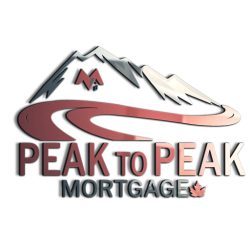What is a monoline lender?
A monoline lender is a lender that sources funds for mortgage financing from a range of different investors. These investors can sometimes be, but are not limited to: banks, credit unions, pension funds, insurance companies, large corporations, and investment firms.
When you obtain a mortgage, the lender is providing money to you in return for a promise to pay. You are promising to pay your mortgage according the terms set out for the rate, length of the term, and the amortization. Your promise to pay essentially becomes an investment vehicle for some of these large institutions and companies that the monoline lenders obtain their funds from.
Why use a monoline lender? Monoline lenders only provide mortgage financing. They do not want to sell you insurance, bank accounts, lines of credit, etc. They also do not operate out of a physical branch network. Because of this, and their access to different investors, they can often provide financing at lower rates than some of the larger chartered banks, and without the added sales pressure associated with dealing with a large bank.
With the mortgage rule changes of the last couple of years, monoline lenders are able to offer “insurable conventional” mortgages in addition to high ratio mortgages. An insurable conventional mortgage is when you have a mortgage that is up to 80% of the property value, and it is approved with bulk insurance through CMHC, Sagen, or Canada Guaranty. Bulk insurance, also known as portfolio insurance, is a type of mortgage default insurance. This bulk insurance reduces risk to the lender, and allows the mortgage to be securitized for investment purposes.
The maximum amortization for these types of mortgages is 25 years, and there is no mortgage insurance premium paid by the borrower. The benefit to you is potentially a much lower rate. For all insurable conventional applications, the purchase price must be under $1 million to be eligible. This scenario is based on the purchase of an owner occupied home and a fully qualified borrower.
Monoline lenders always have competitive prepayment allowances, and can debit any bank account for the mortgage payments. There is no “relationship” banking requirement, which can help to simplify financial matters after your mortgage has funded.
Another great feature of dealing with a monoline lender is that they often have more favorable penalty calculations. Canadian mortgages are either written with a fixed interest rate term, or a variable rate term. With either option, there are penalties to break the term early, even upon sale. The standard industry calculation for breaking a fixed term is the greater of 3 months’ interest or the IRD (interest rate differential). What is not standard is how the IRD is calculated.
Remember how your promise to pay is someone’s investment? The penalty is really the replacement cost of funds for the payout of your mortgage. Monoline lenders typically have a lower replacement cost of funds than the big banks, so your penalty could end up being smaller! For more information on fixed rate vs. variable, click here.
If you are speaking to a mortgage broker about getting approved for a mortgage, a monoline lender may come up as a solution for your financing needs. If this is the case, know that you will end up with a competitive and professional lending option that could ultimately save you a lot of money over your years of borrowing.

